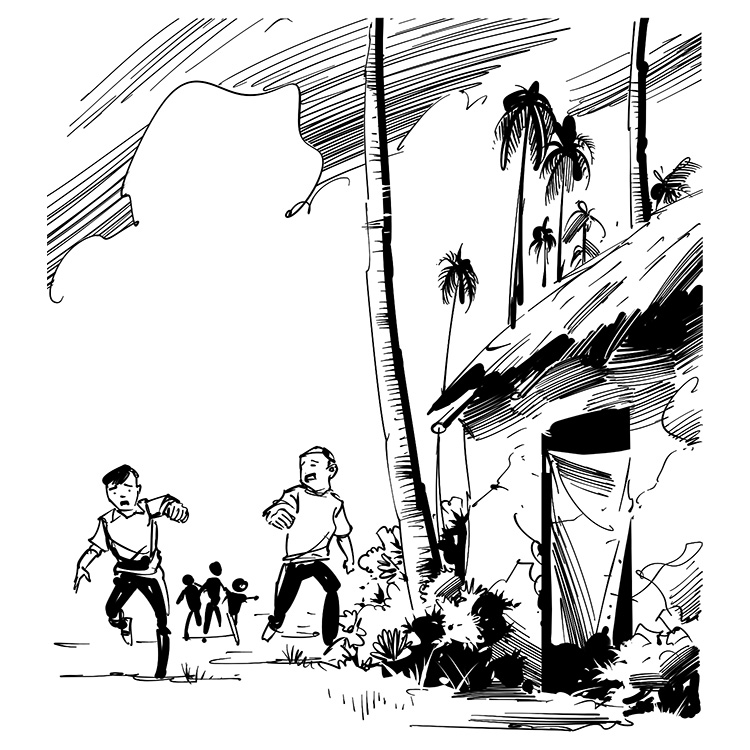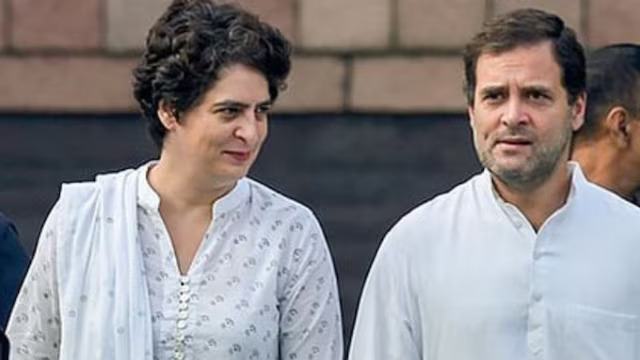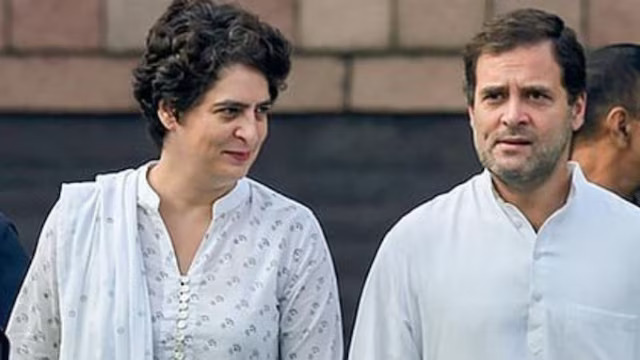The Art of Bangla Story-Writing

The series of Bengali story has left me mercilessly imprisoned by its exceptional charm, it's flowing narrative, it’s trivial representation of the triviality plucked from the trials of life, from the fabulous yet dreary, from the euphoria of derailed imagination yet they constitute the shades and shards, the gory and glory and move from the mundane to the misty and from the chaos to the construction and from nothingness to the absurdity of living life. One such story I read which I must confess is a class apart seemingly based on the ire and fire, on the extremity of intense imagination, on the canvass of perceived hollowness yet the colours of life left colourless at the end of the tunnel.
Thesis
The story is” And How are You" by Budhadeva Bose from the Anthology of "Greatest Bengali Stories ever told" translated by Anurva Sinha.
The story to the best of my judgment is a stubborn obsession, an adamantine pursuit of a blurred image of a woman who mystifies the author in the fleeing glance to leave him chasing her shadow for the rest of his life. Arguably a realistic figure unsure of the part of geography she was noticed as the narrator has trotted the globe. The story has some subdued concussions lamenting existential ire, the best of conditions to exist yet the void hits him hard, the vacuum within and the illusion outside collide to leave him gesticulating while questioning the charade of happiness. Well settled as he is in the rusty locale of papligarh,an industrial suburb equipped with the best of resources for the sahibs to regale them, to engage them socially and to rest them on the rattan chairs after work. At times there is a repressive undercurrent of nihilism with its roots in longings for the kafakas,Camus and Becketts,for the pintos, Elbees,for the Satres, jaspers and Kierkegaards. But in fact in essence he is left dangling between the joy of life and the unsaid pain that surrounds it.
There were three classes of people in pipalgarh,the Sahibs, officers and workers, and each class had the best of what it could clamour for. The story is in the first person narration and the only character who has a name in this story is the wife of the narrator, Milu,elegant, ravishing and the touch of glamour does the icing on the cake. The narrator is not disillusioned with life nor does he find anything disconcerting but the chase, he harangues, is not utopian, isn’t remembrance of things past, isn’t a dive into the depths of what is lugubrious, hollow, shady or dandy. There is an image of a woman he had seen somewhere who could be his Milu, could be any other woman but she had fired his imagination clad in red blouse, with dew as the moisture on a silky face, the white border of her raiment left him gasping for breath. And How Are You is the question which clarifies his neurotic leanings but they are not neurotic as he calls himself "a beastly lump of flab, flesh and filth". Every single passage of the story has an allusion to the sustained romantic yearnings apparently entrenched into the madness of the memory, into the illusory quest of the lost woman, the woman he imagined must not be sixteen, must not be as enthralling and brimming as she was when seen last or who knows she might have been dead. The very adumbration of a hazy sketch of a comely damsel leaves his imagination dented, bruised, sore and even restless. There are at times feelings that he questions the absurdity of happiness even while being in possession of a bewitching wife yet the hunt for the lost woman is rigorous, intense and unrelenting.
Budhadeva Bose is a wily craftsman whose art scales the boundless joy of weaving a narrative gripping as a tension packed movie or entertaining as a comic interception in an atmosphere of directionless breeze which swirls without a destination.
@Raja" by Ritwik Ghatak in an anthology of Bengali short stories, selected and translated by Arunava Sinha. I knew Ghatak as a film maker of certain distinction in the early phase of Indian cinema. But didn't know much about his stories until the moment I read him which defined the moment itself. It was a reading of a story which left me in the depths of curious itching swayed by the sheer quality of narrative; I polished off the story as a breathless ride without querying the space for a long pause. The story in its structure has the fundamental element of curiosity as its feature and brevity as its soul.
The story Raja is about an ambitious individual committed to lofty dreams, high rise imagination trudging the unseen world of promise, pompous clamourings and arrogance interspersed in between without facing the trials of existence. Raja's dreams of walking on cloud nine is shattered by a single stroke of misfortune as he moves from opulence to misery like a tragic hero, like a victim of self inflicted misjudgment, like trundling the fancy without reality as it's shadow. Driven to despair and condemned to alter the course of his destiny he ekes out a living by recourse to pick pocketing and gradually masters the art. He is decently ensconced in the sensation of his profession and nudges his hands with magical dash in a flash to grow the quantum of wads of currencies to relish his mendacious prods into pockets, not his. He is well on course with selective amnesia about his past, about his broken education, about his fearless fantasies and about his envisaged future.
A dull day when he is back to his hired room he finds an envelope inserted into his room. He unzips, whizzes through the content and dives into the phantasmagoria of the garden of Edens emblazoned in complete tatters. The letter was addressed to him written by a group of his classmates inviting him to a get together. He was left on the cusp of a dilemma whether to go or not but the brain bird had some wisdom left and decided to join the get together.
Circle of fire.
The name seemed to bring his entire College life back to him. Those glorious days-the first flush of youth,the cricket field,the debating society,socials,literary clubs…Gouri,Singhdha,Maya…and what was her name now,Roll no 67,he couldn’t quite recollect,all the girls in his class standing in a row.
Buddha,Sunil,Ananda,Bimal-
Raja is accorded a grand reception as nostalgia grips his friends, reminding him all of his grand actions, the grandeur of his thoughts and the silvery roads to imagination. He found his friends in positions of distinction and thus scripts a tale of lies for himself. The bash is on, reaches crescendo and dies down as most of them were to attend their duties the next morning. Raja also decided to leave midnight.
A Wallet
Raja’s slim, skillful fingers tingled. Before he knew what he was doing,he grabbed the wallet. His heart thudded. Hurling a quick glance at his sleeing friends, he opened the wallet. A wad of notes. It must be Ananda’s filled with cash from the shop. He put the wallet back in the pocket of the blue shirt before putting it on
Raja.
While looking for his shirt taken off in the frenzy of meeting friends comes across a blue shirt. His eyes fall on a wallet popping out from a pocket of a shirt. He evades the thought, chides himself, and puts on his shirt, but as he moves about to leave, his fingers moved, danced, and conducted the operation clean in a huff. Raja ends up as a pick pocket there and does justice to his skills.
What is Ritwik's strength in the story is the utter precision of passages, the economy of words, the brevity of sublime thoughts compressed into a coherent whole as if he was committed to thaumaturgy, the moment clarified without concussion of contradictions. A great treatment and a greater presentation. A class and classic blend of art and articulation.
Bandhopadhay is as pompous as the grandeur of zamindar Bishambhar Rao who wallowed in the glory of wealth which accrued to him as part of his lordship,as part of his enormous empire and as part of his exalted status in alliance with the politics of the day which shot him to the heights of sophistication, ostentatious in conduct and opulence as the opium held it's sway. His was generation seventh as an array of portraits of his proud ancestors hung on the walls of the music room. All were lined up in the ecstasy of unseen doom. Bishambhar Rao was the final link of the impregnable history, the last Mughal to don the gloves of disintegration as history dissipated and arrogance scripted by the imposing past collapsed, the hour of disgrace emerged without tocsin while desperate to hang on, the naked dance of the nouveau riche, the Ganguly's brought heavens veritably on earth hurting, injuring and agonizing every single pore of Bishambharnath 's body. He recused himself from the public appearances under the duress of onrushing destiny where a few coins of yore tinkered in his bare bowl. Chotto Ginni,the female elephant, was well past the heydays and so was faced by Tufan,Bishambharnath' s horse who saddled up on grand occasions like a prince whose charm produced no spiral of dust. He galloped off with his master astride even during the faded grandiose.
The Roys had amassed wealth over three generations. The fourth generation had ruled. The fifth and sixth squandered everything and accumulated debt. During the seventh generation,in Bishambhar’s era,the goddess of wealth was drowned in an ocean of debt.Like the king of the gods without his consort, Bhishambhar sat back and watched. That was not all.In its seventh generation, the dynasty ran out of descendants. Following the orders of the judges’court and the High Court, the fortunes of the Royf amily were wiped out.
Tarashakar,Ananta, and Netai,the last of the three left in the service of Bishambharnath, knew the perils of what to follow. Ganguly's flourished while Bishambharnath was into the shadows of a flickering greatness. In that moment of distress and in that hour of humiliation heaped by the unseen devils, Bishambharnath decides to attend a function at Ganguly's. All three in his service are directed to uphold somehow the crumbling empire without dishonouring the reputation of their master. All are harried, bewildered, and gob smacked as to the clues to protect the glory of their lord. All ran helter skelter, and day's harum scarum sufficed to maintain the last edifice of their master's majesty. In the function itself, Ganguly's poked Bishambharnath to invite Chandrabala peari to his house to see the sizzling flexibility of her waist and the swift movement of her feet. To stave off the last dig at his failing reputation, he nods in agreement.
Another onslaught unleashed on the hollow rings of his time. Bishambharnath finally orders to open the music room while efforts were afoot to put up a brave front to knock off the poverty thudding at his door. Chandrabala peari gets the final crescendo in an aficionado of art as the music begins, ears are zapped, and the charms toss up their heads in the sheer euphoria of steps measured, magical, majestic, rumbustious.
At the end of the day, the honours insulted purportedly by Ganguly's are thwarted, and the Lord rises to conquer the contumacious designs. Bishambharnath slips into the music room to find the six generations of Rao mustering up the strength to see Bishambharnath saving the grace for them. Chandrabala peari had her moments of salvation after the show as she disappeared finally to culminate into history, and so does Bishambharnath.
His voice could no longer be heard. Only the whip slipped out of his hand to strike the door of the music with a sharp sound.
The Music Room
The story reminds me one by Tagore,Babu's of Nayanjore, where the challenge is also to save the skin of the tattered zamindar's. Must say that the story Music Room by Tarashakar Bandhopadhay is a microcosmic illustration of the moments surrounded by the clouds of devastation, exasperation yet the way to glory is as dignified as the dampened spirits of a dwindling empire. It's so well translated by Arunva Sinha who just exhibits a huge prowess to retain the text as much as he can. Only those who have read it in the source language can comment better. But the climacteric part is so well controlled, and the flair is breathtaking without a loose cannon inserted.
Resolution
The anthology of translation of Bengali stories have done a great deal of good to the stories originally written in Bangla language over a period of time brought in the form of a collection has provided access to stories as rare as The Music Room, or Raja. The exposure to Bangla fiction has been enriching with the many facets of the Bangla fiction unearthed and explored, rich in texture, splendid in conception, and captious in presentation. The stories enable perspectives, one which is manifested through these three selected Bangla stories translated in English, adding edges to the study of comparative literature.
(Author is a faculty member in the Department of English, College of Commerce, Arts & Science, Patnas.)

 1 day, 22 hours ago
1 day, 22 hours ago











[[comment.comment_text]]